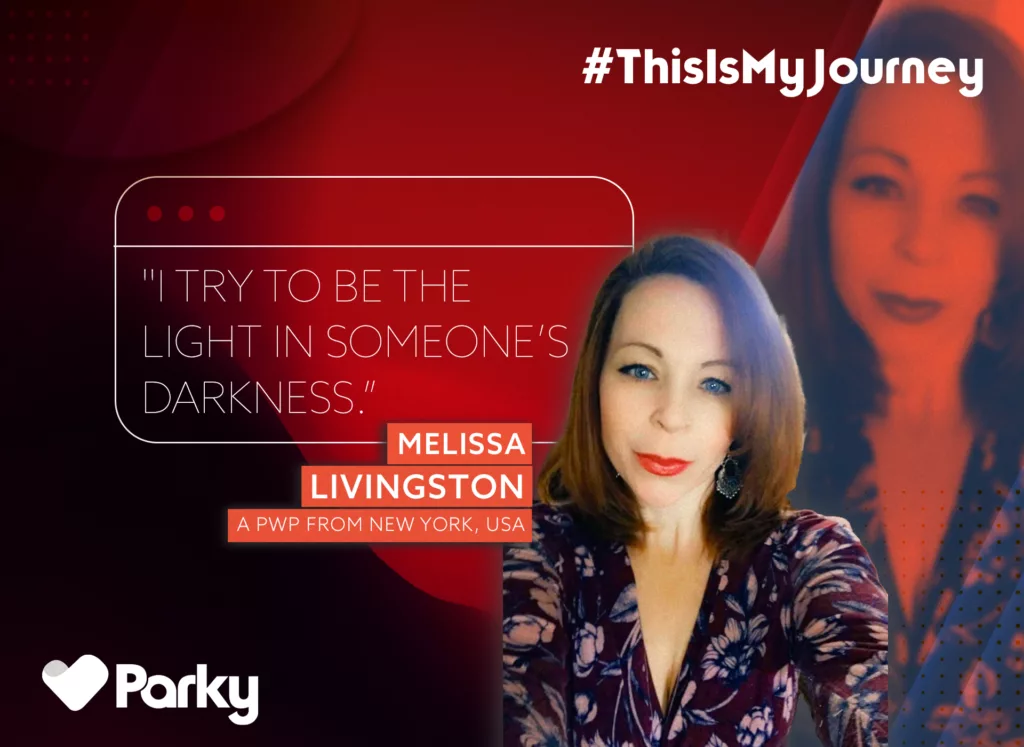

Melissa Marie Livingston was diagnosed with Parkinson's disease in 2020 after a challenging seven-year journey. During this period, Melissa had to face personal and professional challenges. Despite the significant changes in her life, she never lost her determination to thrive and inspire others, continually advocating for self-care, community support, and the importance of a positive mindset in managing her condition.
As a single parent, she had to learn the importance of seeking help and maintaining her well-being. Melissa actively manages her condition through neuroplasticity, regular exercise, and careful monitoring of her diet. Through her role as a content creator, Melissa aims to inspire and support others facing similar challenges.
I was diagnosed with Parkinson's disease in 2020 after a seven-year journey of seeking answers. Concurrently, I experienced hip issues related to osteoarthritis, which remained undiagnosed even longer than my Parkinson's. The presence of these hip issues complicated the diagnostic process, as many symptoms overlapped and did not clearly indicate a single condition. This led medical professionals to initially consider Multiple Sclerosis as a possible diagnosis.
Following my diagnosis, I encountered several significant challenges both personally and professionally. My long-term relationship ended and I had to move two hours away, which was particularly challenging as I had to relocate with my two daughters. In addition to managing the logistics of the move and the emotional toll of the separation, I needed to secure employment in a new area. This transition required balancing my new responsibilities with the ongoing demands of my health so that I could both survive and thrive in my new circumstances.
One of the most unexpected aspects of Parkinson's disease was the variety of challenges it presents. Initially, I believed I could manage everything on my own, but I soon realized that no one can handle this journey alone. As an independent single parent, asking for help was not in my nature. However, I learned that seeking support was crucial to maintaining my health and well-being.
In the face of adversity, I am most grateful for the community that surrounds and supports me. Engaging with a global network of individuals who share similar experiences has been invaluable. This community has provided opportunities to learn, teach, and advocate for one another, offering insights not only on how to live well despite Parkinson's disease but also on my own resilience. The connections I've made have profoundly shaped my understanding of human strength and solidarity.
I prioritize managing my condition through a focus on neuroplasticity and maintaining an active mindset. Retraining the brain and cultivating a positive outlook are paramount in my daily routine. Equally important is regular exercise. Movement is life. Literally.
I strive to give myself grace and listen to those around me when they observe that I might be overexerting myself. I’m mule stubborn sometimes so that’s no mean feat!
Monitoring my daily routines involves a significant focus on managing my diet, particularly due to the complexities of gastroparesis in conjunction with Parkinson's disease. The ongoing difficulty with eating sufficiently which has made me drop weight- more than I’m comfortable with is a persistent concern for me.
Speak up! Nobody is infallible and if you disagree with a diagnosis, medication change; or therapy- or if you need something different, you are your best ally. If your MDS doesn’t follow the idea that the patient is the sun- then you’re not getting the best care for yourself. Don’t stay quiet about it.
Don’t people please—those who are meant to be in your life will stay, and those who leave were not meant to be there. You will heal and be better for it. Empathy is more valuable and less common than you think. Listening to others is a gift you can always give and be appreciated.
DO exercise. DO pay attention to the focus you eat and how it makes you feel. SO seek out alternative therapies that work for you, but always do your homework first. Don’t get stuck in negativity, compare yourself from today with yourself from yesterday, and don’t take time for granted- life is more fleeting than you realize.
I choose to hold on to hope, it’s what drives us. I try to be the light in someone’s darkness and recommend that to others-through service to others. You can learn that things are not always as bleak as you think they are. When you can’t look on the bright side, I’ll sit with you in the dark.♥️
Join our community in spreading hope and strength. Tell us your unique journey with Parkinson's to uplift and empower others.